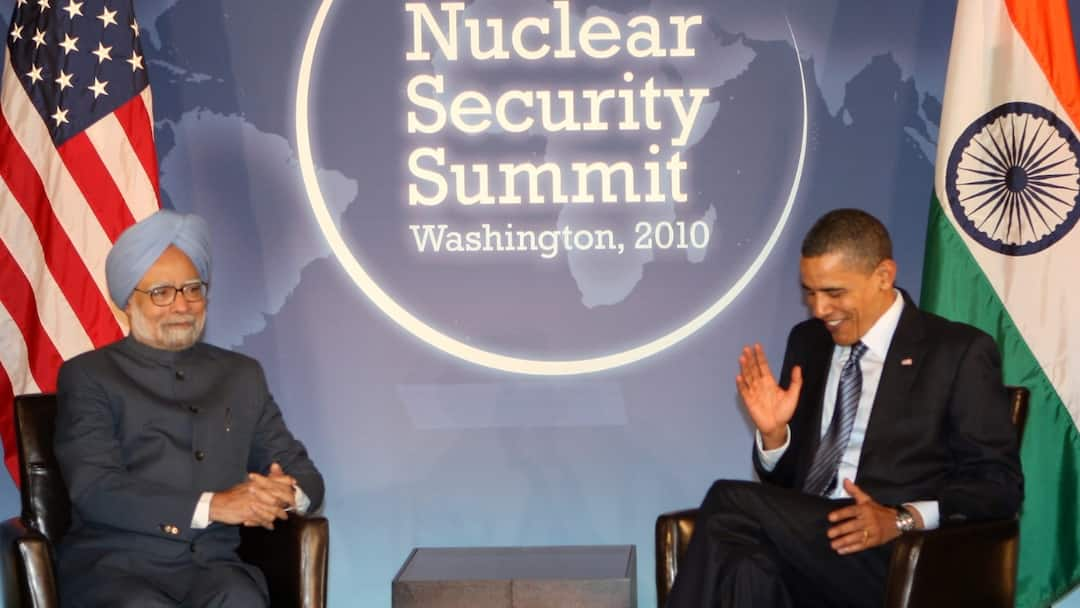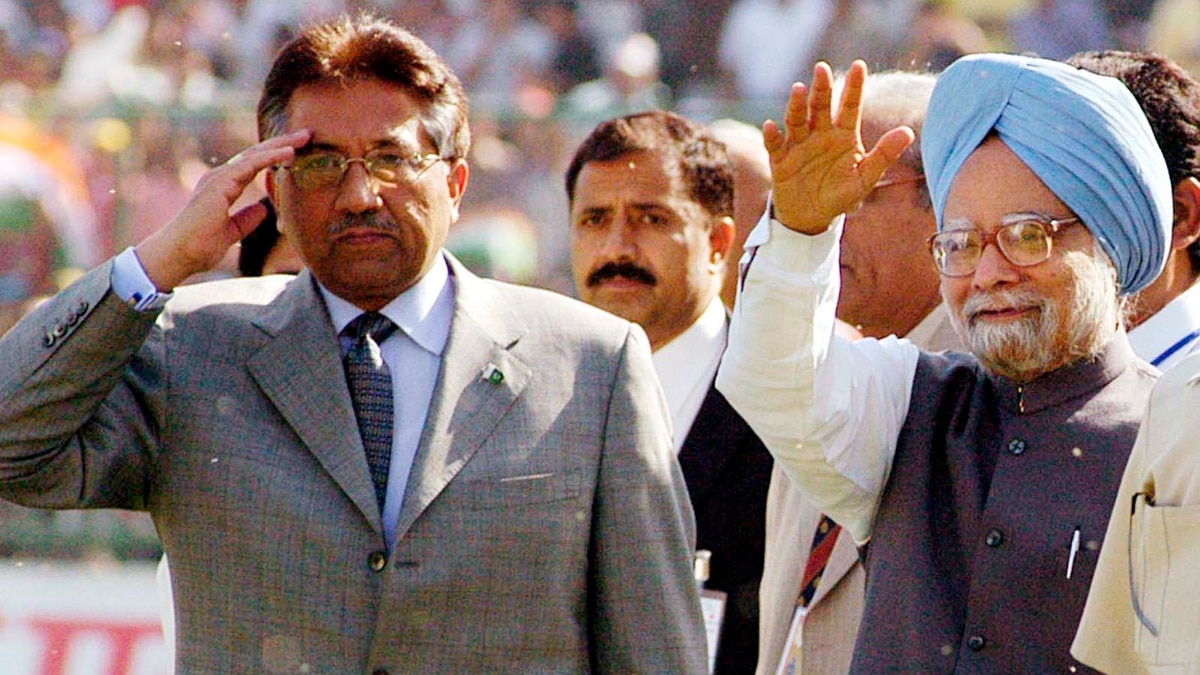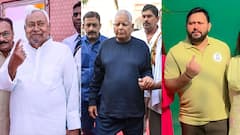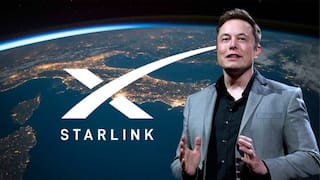When The ‘Scrupulously Honest’ Manmohan Singh Gave India Its Strategic Foreign Policy
From clinching the civil nuclear deal with US to almost finalising the Kashmir solution with Musharraf, Manmohan Singh took bold moves, risking own position to make India a crucial geopolitical player.

Manmohan Singh Death: “When Prime Minister (Manmohan Singh) speaks, people listen because of his deep knowledge,” former US President Barack Obama famously said in 2010 on the margins of the G20 Summit. After his retirement, Obama noted in his presidential memoir, A Promised Land, that Singh was “a gentle, soft-spoken economist in his seventies, with a white beard and a turban that were the marks of his Sikh faith but to the Western eye lent him the air of a holy man … For the duration of his tenure as prime minister, I would find Singh to be wise, thoughtful and scrupulously honest.”
Singh, who passed away at the age of 92 in Delhi on Thursday, was India’s first Sikh Prime Minister. Apart from his landmark economic reforms in 1991, Singh ensured he will take India’s image to unprecedented heights globally giving the country the much-needed strategic colour that was desperately needed at the time.
Under Prime Minister Singh, India signed the critical India-US Civil Nuclear Agreement, also known as the 123 Agreement, in 2008. The deal was announced in 2005. The main objective of the deal was to smoothen a historically troubled bilateral relationship between the United States and India. Singh’s primary objective was to alter the way in which the West, particularly the US, views India on nuclear issues.
The deal, which was achieved after a lot of domestic political turmoil, marked a significant transformation in the bilateral relationship between India and the United States and was pivotal in integrating India into the global nuclear order.
Prior to signing the deal, India conducted its first nuclear test in 1974 (Smiling Buddha), leading to international sanctions and its isolation from global nuclear trade. Delhi then refused to sign the Nuclear Non-Proliferation Treaty (NPT), citing discriminatory provisions. This led the US to impose restrictions on nuclear and dual-use technologies under the Nuclear Suppliers Group (NSG) and other regimes.
But once the 123 Agreement was signed, the pact proved to be a broader strategic partnership between India and the US, emphasising economic, defence, and energy collaboration.
It recognised India’s need for clean energy and its impeccable non-proliferation record despite being a non-NPT signatory.
Being a man of farsightedness, Singh saw these strategic advantages to be likely outcomes of the deal for which he was ready to risk his coalition partners, the Left parties, who pulled out from the ruling government. But Singh stood firm.
Years later, former Foreign Secretary Vijay Gokhale noted in his book, ‘The Long Game: How the Chinese Negotiate with India’, that China had leveraged its “close connections” with the Indian Left parties to “build domestic opposition” against the nuclear deal.
Addressing the Lok Sabha on the nuclear deal even as opposition parties like the Bharatiya Janata Party (BJP) staunchly criticised it, Singh said: “The United States of America is a global power. Their interests do not all the time converge with India's interests. But there are opportunities, there are occasions when our interests do converge and I believe that it is the duty of any Government of India to take advantage of all those opportunities which widen the development options that become available to us. That is precisely what we have done in dealing with the United States of America.”
Walking a tight diplomatic rope, he said: "I wish to assure the hon. House that while we have been working towards strengthening our relations with the United States of America, we have not forgotten our traditional strategic partners. For example, today our relations with Russia are warmer and stronger than ever before; our relations with France today are stronger and warmer; today our relations with China are stronger and warmer."
An erudite PM that Singh was known as, also said: “We have a nuclear weapon programme of our own and there is today an implicit recognition of that reality on the part of the rest of the world.”
The India-US Civil Nuclear Deal not only helped India overcome decades of isolation from global nuclear commerce but also positioned the country as a key player in international energy and strategic arenas. While challenges persist, the deal's impact on energy, economy, and geopolitics continues to shape India's global aspirations.
The deal has strengthened India-US relations for several decades to come, contributing to broader strategic initiatives like the Quad and Indo-Pacific Strategy, which define the present day robust India-US ties.

Singh Never Visited Pakistan But Normalised Trade Ties With Islamabad
Under Prime Minister Singh’s second tenure, India took giant strides to normalise ties with Pakistan. Just like Obama, even former Prime Minister of Pakistan Pervez Musharraf called Singh to be a “nice man” for his country, while speaking to a media channel in 2009.
Musharraf, who passed away in February 2023, was referring to his meeting with Singh in 2005, a year that saw significant diplomatic activity between India and Pakistan as they continued to engage in discussions aimed at improving bilateral relations.
Musharraf visited India in April 2005, during which he met Singh. This visit was marked by discussions on various contentious issues, including the Kashmir conflict. Both leaders emphasised the need for peaceful resolution and improved cooperation. During their talks, the leaders explored potential solutions for the Kashmir issue, with Musharraf proposing ideas that included self-governance for the region.
In 2006, both sides signed the Lahore Declaration, seen as a significant step in the peace process between India and Pakistan.
However, with the 2008 Mumbai terror attacks, ties between India and Pakistan took a massive hit even as Singh was severely criticised. Eventually, with Musharraf in exile, Singh met his new Pakistani counterpart Yousuf Raza Gilani at the Egyptian resort Sharm-el-Sheikh in July 2009.
The joint statement that was issued post the Sharm-el-Sheikh summit mentioned Baluchistan and that became a political hot potato in India as Islamabad had been accusing New Delhi of supporting insurgency there.
Then in opposition, the BJP had said: “Waters of the seven seas will not be able to wash the shame.”
Replying to these accusations, Singh said in Parliament: “We do not dilute our positions or our resolve to defeat terrorism by talking to any country. Other major powers affected by Pakistan-based terrorism are also engaging with Pakistan. Unless we talk directly to Pakistan, we will have to rely on third parties to do so.”
In 2010-2011, both sides took several steps to normalise trade between the two countries by agreeing to trade in large number of goods. The plan never saw light of the day with the coming in to power by Pakistan’s former Prime Minister Imran Khan and Narendra Modi in India.
Singh had also almost signed the contentious Teesta River Water Sharing agreement with Bangladesh’s then Prime Minister Sheikh Hasina but it failed due to stiff opposition from West Bengal Chief Minister Mamata Banerjee.
The idea of QUAD was first floated by former PM of Japan Shinzo Abe when he came to India in 2007 on Singh’s invitation.






































